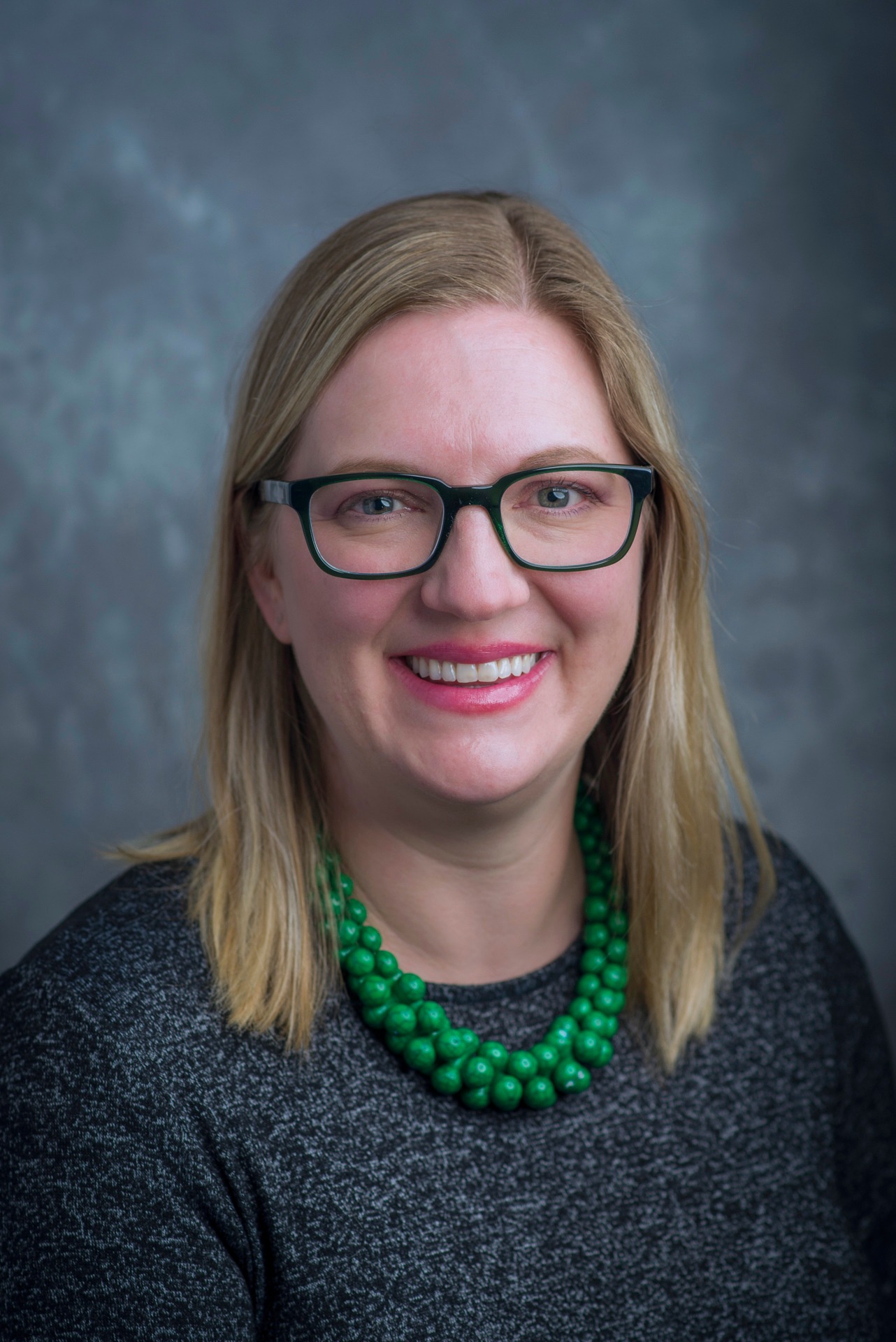MSU HDFS Dr. Sarah Douglas leads team for new U.S. Department of Education grant
August 24, 2023 - Katie Frey
 Dr. Sarah Douglas, MSU Human Development and Family Studies associate professor, is principal investigator for a new grant from the U.S. Department of Education to evaluate Family Telepractice Augmentative and Alternative Communication Modeling (FamTAM) Intervention, a program designed to support professionals and family members of children who use augmentative and alternative communication systems. These systems, often paper-based with symbols or images but sometimes phone or tablet apps, allow children to select symbols to communicate.
Dr. Sarah Douglas, MSU Human Development and Family Studies associate professor, is principal investigator for a new grant from the U.S. Department of Education to evaluate Family Telepractice Augmentative and Alternative Communication Modeling (FamTAM) Intervention, a program designed to support professionals and family members of children who use augmentative and alternative communication systems. These systems, often paper-based with symbols or images but sometimes phone or tablet apps, allow children to select symbols to communicate.
“Family members are critical communication partners for children who use augmentative and alternative communication,” said Dr. Sarah Douglas, the grant principal investigator. “Evidence suggests that children’s communication development hinges upon training provided to families and that children experience the best outcomes when family members are well-trained and highly engaged. However, families are rarely provided with necessary training to support their kids.”
Most research has focused narrowly on mothers, with little research focused on fathers, siblings, and other family members. Few studies have trained multiple family members to support the communication of a child who uses aided augmentative and alternative communication or measured the compounding effects of a whole family approach to supporting augmentative and alternative communication.
“Best practice indicates that intervention should be provided to all family members,” she said. “Here's the child, and they're learning how to communicate; and everybody in their life learns the same thing, they're all reinforcing it the same way, and they're all supporting that child. Like a wraparound approach. Then, the child's communication growth would be exponential instead of just one person who supports them.”
The project, funded through the Institute of Education Sciences (a branch of the U.S. Department of Education) will use an iterative approach to create, revise, and evaluate the FamTAM Intervention including online professional development for school-based speech language pathologists (SLPs) and online training and coaching by school-based SLPs to support family member implementation of aided language modeling of augmentative and alternative communication. Dr. Douglas will work with Professor Hedda Meadan (co-PI) at the University of Illinois Urbana-Champaign to carry out this work.
They will develop and test the FamTAM Intervention using a series of studies including focus groups, and mixed method studies (with single case design and qualitative approaches) to aid with intervention development and refinement. The project provides 4 years of funding.
Expected outcomes of this project include increased knowledge, self-efficacy, and use of aided language modeling strategies and coaching practices by school-based SLPs, increased family member knowledge and use of aided language modeling, increased family quality of life, empowerment, family-professional partnership and self-efficacy and increased independent communication and increased use of aided augmentative and alternative communication by the child.
“We want to make sure that it's going to work with lots of different families that it's culturally sensitive because we're implementing it now in the home. We want to be certain that families feel comfortable and confident, with whatever materials are provided and that the SLPs, feel comfortable and confident to coach them.”
The development of this training has special meaning for Dr. Douglas, a former teacher.
“As a former teacher supporting children who used augmentative and alternative communication, I saw first hand the need to have support for learning these systems by communication partners in the home, classroom, and other community settings. I have spent most of my career developing and testing interventions to support this population of students.”
To learn more about the MSU Department of Human Development and Family Studies, visit hdfs.msu.edu.

